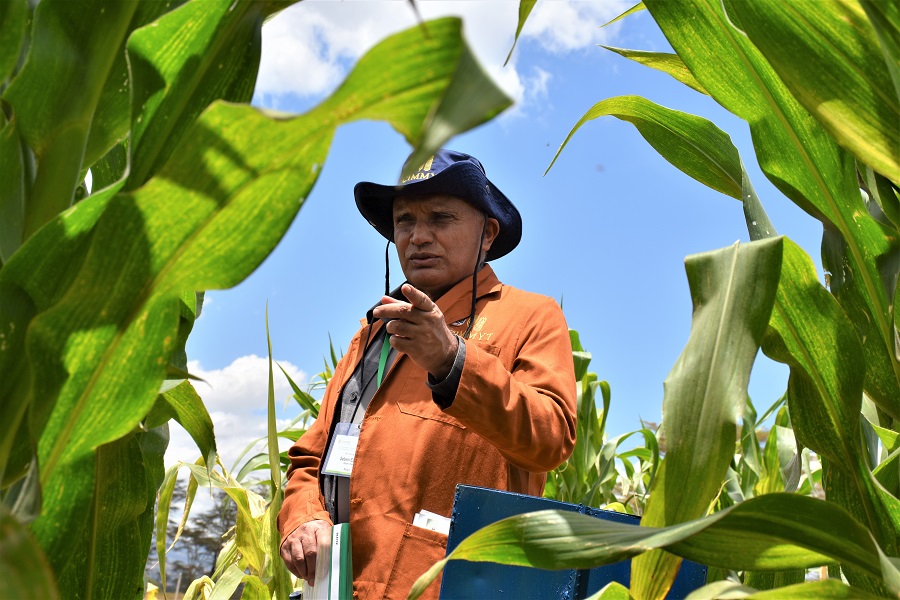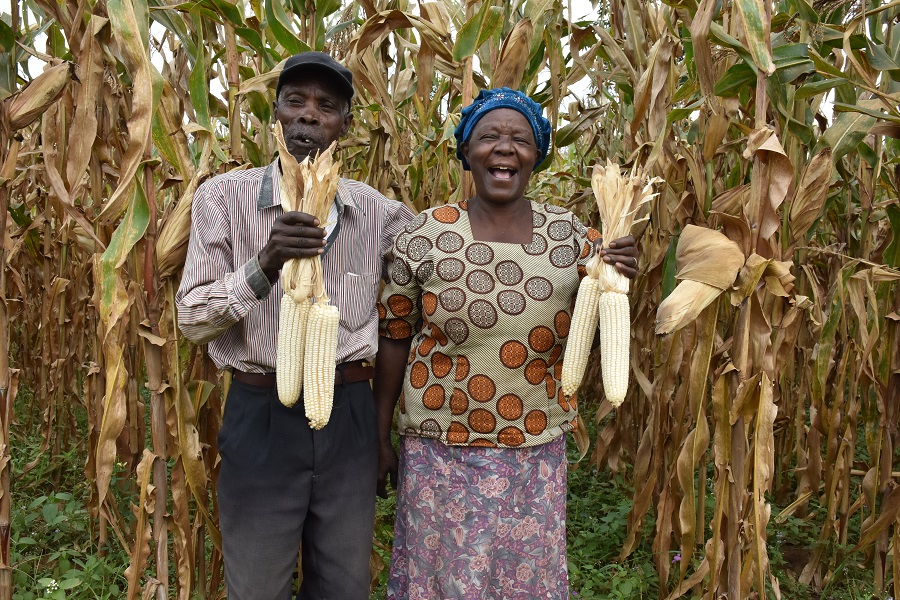Delivering good and stable yields for small scale farmers: Western Seed’s growing success in Eastern and Southern Africa
“Introducing a new maize variety needs a great deal of investment. You need to build a convincing business case for varietal turnover. Some new varieties may do well for certain traits, but there are other factors other than yield to consider, for instance, producibility, cost of seed production and farmers preferences.” says Saleem Esmail, CEO of Western Seed.

Western Seed and CIMMYT have a long-standing collaboration since the Africa Maize Stress project over the past twenty years. Access to improved drought and disease resistant germplasm and use of the double haploid platform in Kiboko, Kenya help the company maize breeding program. Western Seed collaborates actively in CIMMYT’s regional trials.

Western Seed hybrids help smallholder farmers like Margaret Wafula and the Kaita family in western Kenya, get good maize harvests despite the numerous challenges like drought and diseases.
Read more about the Western Seed case study here.
Trackback from your site.
